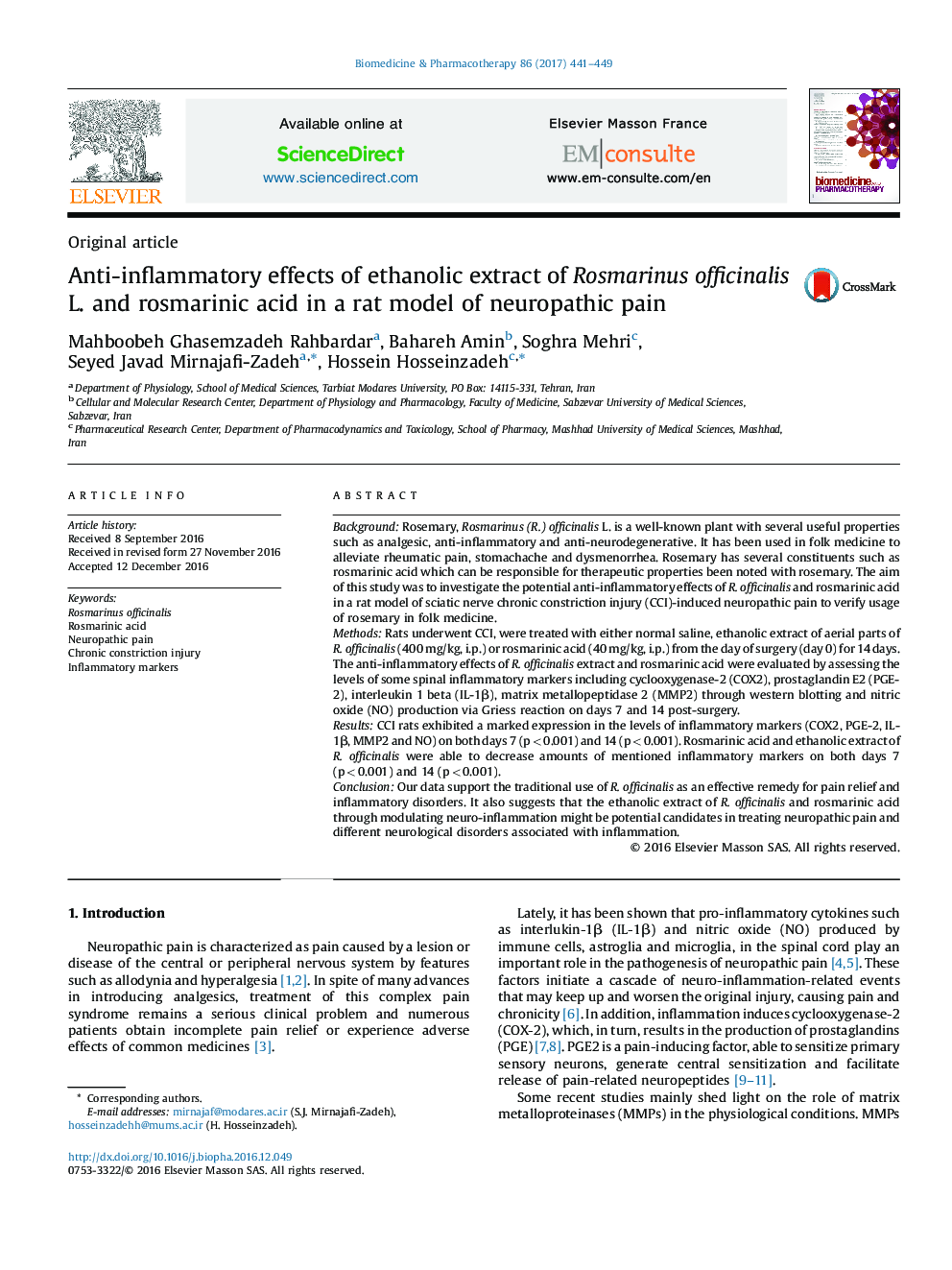| کد مقاله | کد نشریه | سال انتشار | مقاله انگلیسی | نسخه تمام متن |
|---|---|---|---|---|
| 5553559 | 1557956 | 2017 | 9 صفحه PDF | دانلود رایگان |

BackgroundRosemary, Rosmarinus (R.) officinalis L. is a well-known plant with several useful properties such as analgesic, anti-inflammatory and anti-neurodegenerative. It has been used in folk medicine to alleviate rheumatic pain, stomachache and dysmenorrhea. Rosemary has several constituents such as rosmarinic acid which can be responsible for therapeutic properties been noted with rosemary. The aim of this study was to investigate the potential anti-inflammatory effects of R. officinalis and rosmarinic acid in a rat model of sciatic nerve chronic constriction injury (CCI)-induced neuropathic pain to verify usage of rosemary in folk medicine.MethodsRats underwent CCI, were treated with either normal saline, ethanolic extract of aerial parts of R. officinalis (400 mg/kg, i.p.) or rosmarinic acid (40 mg/kg, i.p.) from the day of surgery (day 0) for 14 days. The anti-inflammatory effects of R. officinalis extract and rosmarinic acid were evaluated by assessing the levels of some spinal inflammatory markers including cyclooxygenase-2 (COX2), prostaglandin E2 (PGE-2), interleukin 1 beta (IL-1β), matrix metallopeptidase 2 (MMP2) through western blotting and nitric oxide (NO) production via Griess reaction on days 7 and 14 post-surgery.ResultsCCI rats exhibited a marked expression in the levels of inflammatory markers (COX2, PGE-2, IL-1β, MMP2 and NO) on both days 7 (p < 0.001) and 14 (p < 0.001). Rosmarinic acid and ethanolic extract of R. officinalis were able to decrease amounts of mentioned inflammatory markers on both days 7 (p < 0.001) and 14 (p < 0.001).ConclusionOur data support the traditional use of R. officinalis as an effective remedy for pain relief and inflammatory disorders. It also suggests that the ethanolic extract of R. officinalis and rosmarinic acid through modulating neuro-inflammation might be potential candidates in treating neuropathic pain and different neurological disorders associated with inflammation.
Journal: Biomedicine & Pharmacotherapy - Volume 86, February 2017, Pages 441-449